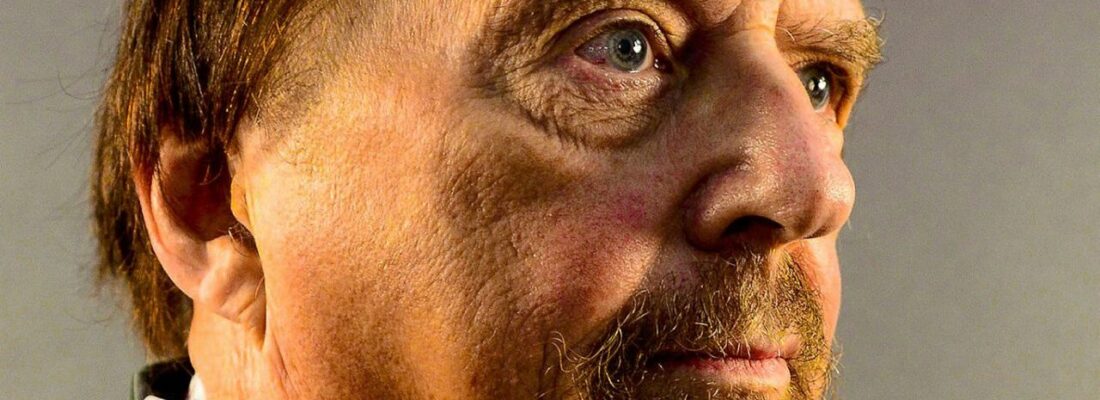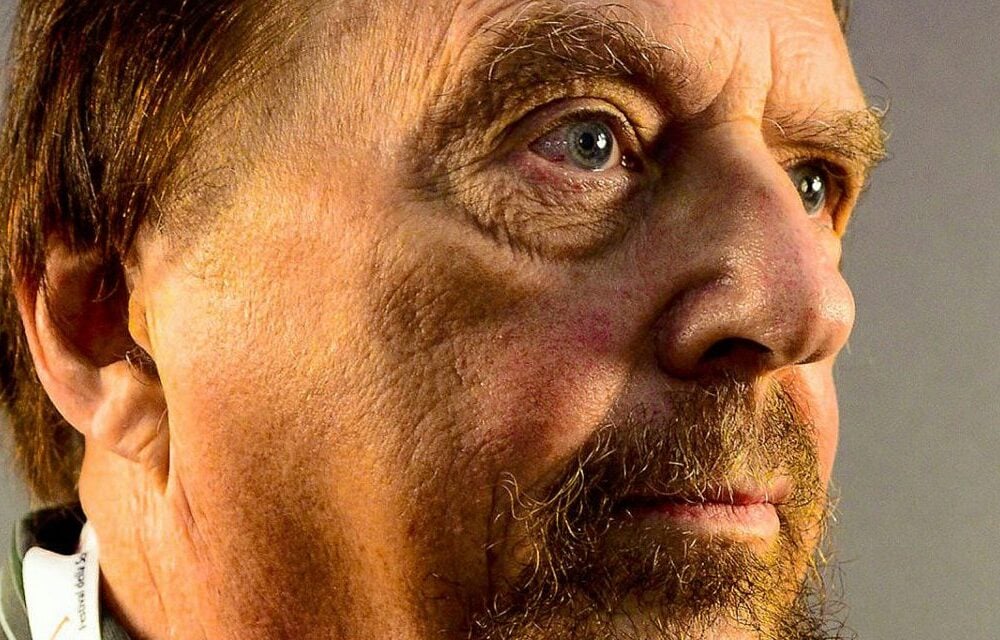Keynote Speeches
Historian, journalist, and author Gwynne Dyer tracks down the world’s top climate scientists to discuss the extraordinary measures we must contemplate to counter the irreversible effects of climate change.
The global climate emergency is now an alarming fact of life. Much as we still need to get emissions under control, many are thinking that it’s all too little, too late. As scientists, politicians and concerned citizens scramble for solutions to the catastrophic effects of a warming world, is it time to be exploring the controversial topic of geoengineering?
For decades, discerning readers have turned to journalist and historian Gwynne Dyer for his unparalleled acumen in serving up hard geopolitical truths. Intervention Earth is built around Dyer’s interviews with sixty climate scientists from around the globe, including the leading figures in the geoengineering field. One of the most interesting topics: the pros and cons of Solar Radiation Management, a possible planetary Hail Mary that is rife with political risks.
But Intervention Earth is about more than technological mega-projects. Dyer devotes ample space to the many innovative ideas on offer, but there is no get-out-of-jail-free card. We will need a whole portfolio of techniques and technologies—and a lot of hard, thankless work—to keep the planet hospitable for humanity.
What’s more, many of the technologies that can help us avoid the worst outcomes require years of investment and development before they can be successfully deployed. Global cooperation will be key in implementing the life-saving strategies outlined in the book. Intervention Earth offers a probing, eye-opening look at the problems we face, and the innovations that just might keep us ahead of encroaching disaster and carry us to a safe harbour.
Any emerging civilisation’s population will grow a thousandfold and its energy use will explode long before it has the scientific knowledge to understand the implications, let alone control them. We are guilty of no crime, but we have put ourselves in danger, and it’s up to us to find a way through it.
So I have spent several years interviewing the climate scientists – more than fifty of them by now – who must be our reluctant guides in this crisis. Most of them are terrified of that responsibility, and some are in despair, but this is what I have learned from them. We are in deep trouble, but we are not doomed.
We cannot make a clean getaway, however, even if we manage to cut our greenhouse gas emissions to zero by 2050. The century of high emissions doesn’t just go away.
If it’s 2 degrees higher average global temperature by 2050, that’s where it stays until we have finished the long and very expensive task of taking the excess CO2 back out of the atmosphere, maybe in the early 2100s.
That’s if we’re lucky. If we’re not, then the warming we have caused by 2035 or 2045 will have also trigger natural sources of emissions – ‘feedbacks’ or ‘tipping points’ – that drive temperatures still higher. Those we cannot even turn off except by artificially cooling the entire planet.
That’s called ‘geoengineering’, and it scares even climate scientists half to death. But if our societies are collapsing from the impacts of the heat (sea level rise, crop failures, deadly wildfires and storms), or if the feedbacks are going wild, that will be our only recourse.
Geoengineering is only a temporary patch, not a solution. New emissions still have to stop, and historic emissions will still have to be removed. But climate engineering may be the necessary bridge to get us through the crisis without a catastrophe.
That’s why I have borrowed Jim Lovelock’s famous phrase ‘planetary maintenance engineers’ (from forty years ago) for the title of this lecture. We are already starting to take on that role in various ways, although we don’t yet admit it to ourselves.
Human beings will have to intervene to keep the basic systems we have damaged running, at least until and unless we can restore most of the natural systems and the old climate. We will not see the end of this emergency in our lifetimes, nor will our children in theirs.
The war in Ukraine came as a shock because it was so stupid. How could the Russians think they could just drive some tanks down the freeway to Kyiv, fly in some troops to a local airport, and capture or kill the whole government – when the Ukrainians had had eight years to prepare since the previous invasion? The ‘special military operation’ was almost certain to fail.
It also didn’t make sense because Ukraine was no threat to Russia, and even conquering it would not enhance Russia’s prosperity or its security. Yet Russia did invade. That sort of thing, generalised around the world and throughout history, is why every country feels compelled to prepare for war, although the vast majority of them don’t want war.
I will not go on here about the future course of this particular war, beyond saying that Ukraine will not lose, because military situations can change very fast. I will make that kind of analysis and prediction when I speak, but much could change between now (July 2022) and then.
However, the war in Ukraine is not a unique event. It gives us a standpoint from which we can look at war as a whole. Where did it come from? How did it evolve into the different kinds of war people fight nowadays? Have nuclear weapons really “changed everything except the way we think,” as Einstein said. And will we ever be able to stop?
The good news is that we have already stopped the worst kind of wars: the wars between the great powers that can now kill in the millions. No two great powers have fought each other directly for the past 77 years. They sometimes back proxies, but the fear of stumbling into a nuclear war makes them very cautious about escalation (like the US and Russia in Ukraine).
Any nuclear war would be awful, and even a ‘small’ one like India vs. Pakistan would cause a minor ‘nuclear winter’ worldwide, but nuclear weapons deserve a lot of the credit for staving off bloodbaths like the First and Second World Wars. The global death toll from war has fallen almost every year since 1945.
The deeper effect of the two world wars was to demolish the age-old belief that war is ‘glorious’ and redefine it as a ‘problem’. The first attempts to stop war came after 1918; after 1945 ‘aggressive war’ was made an actual crime, and the effort intensified.
It’s at least a hundred-year project, and it’s not looking that healthy at the moment, but you could have said the same about the anti-slavery movement in 1800 or the campaign for gender equality right now. It’s a long road, but it may take us somewhere better in the end.
In the meantime, Ukraine. On the one hand, naked imperialist aggression must be resisted. Even the UN rules say so, although they also give the five ‘permanent members’, including Russia, an exemption. On the other hand, a nuclear war must be avoided.
There is no good answer, but we can certainly discuss it.





Similar
Speakers